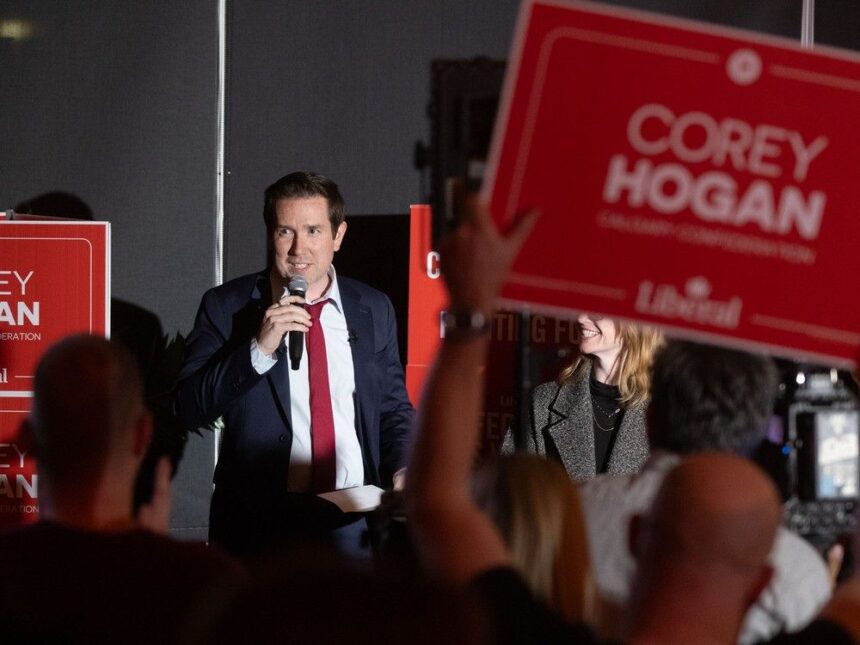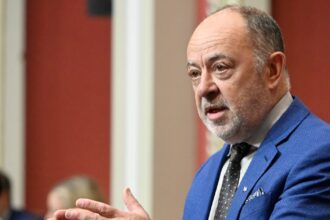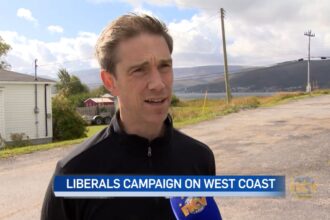In a political landscape often dominated by regional tensions, Calgary Skyview MP George Chahal has emerged as an outspoken voice, vowing to champion Alberta’s interests within the federal Liberal government. The rare Alberta Liberal MP is positioning himself as a crucial bridge between a province that has historically felt alienated from Ottawa and a federal government struggling to maintain its foothold in Western Canada.
“My job is to fight for Calgary, to fight for Alberta, and to make sure that our voice is heard,” Chahal declared in a recent interview at his northeast Calgary constituency office. “I think we need to have more representation, not less.”
Chahal’s comments come at a particularly sensitive moment in federal-provincial relations. Premier Danielle Smith’s government has adopted an increasingly assertive stance toward Ottawa, advancing legislation that would give Alberta more autonomy in areas like immigration and pension management. The Alberta Sovereignty Act, a cornerstone of Smith’s agenda, has been viewed by many as positioning the province for potential confrontation with federal authorities.
The Liberal MP acknowledges the frustrations driving these provincial movements but offers a different approach. “I understand why people are upset,” Chahal said. “But I believe we’re stronger together as a country, and my role is to ensure Alberta’s priorities are understood and addressed at the federal table.”
Chahal’s position is particularly notable given the Liberal Party’s diminishing presence in Alberta. Following the 2021 federal election, he remains one of only two Liberal MPs from the province, representing a party that has struggled to overcome deeply entrenched suspicions since the controversial National Energy Program of the 1980s.
Political analyst Janet Brown points to the significance of Chahal’s stance. “Having Alberta voices within the governing party is essential, regardless of one’s partisan leanings,” she explained. “When decisions affecting Alberta’s economic future are being made, having someone in the room who understands the province’s unique challenges can make a substantial difference.”
The Calgary MP has been particularly vocal about infrastructure investments and economic diversification initiatives for his province. “We need to keep building on our strengths in energy while creating opportunities in emerging sectors,” he emphasized. “The transition to a clean economy must happen with Alberta workers and expertise at the center, not on the sidelines.”
Recent federal economic data suggests Alberta’s economy has shown resilience despite global energy market volatility, with unemployment rates declining to 6.8% last quarter. However, provincial officials maintain that federal environmental policies continue to hinder potential growth in the resources sector.
Chahal has faced criticism from opposition MPs who question his effectiveness in influencing the Liberal cabinet on files important to Alberta. Conservative MP Stephanie Kusie recently challenged Chahal during parliamentary debates, asking, “When was the last time the member actually convinced his government to change course on policies damaging Alberta’s economy?”
In response, Chahal points to several wins, including federal funding for Calgary’s Green Line transit project and investments in hydrogen technology hubs in the province. “These aren’t just symbolic victories,” he insisted. “These are concrete examples of Alberta’s priorities being heard and acted upon.”
As the next federal election approaches, expected by 2025, Chahal’s political future remains uncertain in a province where Liberal seats are rare commodities. Political observers note that his ability to demonstrate tangible results for Alberta could determine whether voters give him another opportunity to serve as their voice in Ottawa.
“The relationship between Alberta and the federal government has always been complex,” notes University of Calgary political scientist Lisa Young. “Representatives like Chahal who can navigate both worlds effectively are valuable, regardless of party affiliation, but they also face the challenge of satisfying constituencies with often competing interests.”
As Canada’s political landscape continues to evolve, with regional tensions remaining a defining feature, one question persists: Can bridge-builders like Chahal help forge a more cooperative federalism, or will the divisions between Alberta and Ottawa continue to deepen regardless of who occupies










